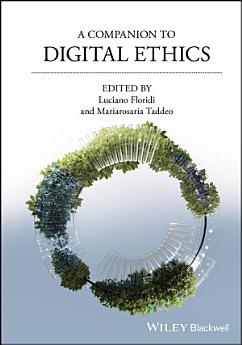A Companion to Digital Ethics
આ ઇ-પુસ્તક વિશે
As digital technologies shape every aspect of today's society, ethical considerations have never been more pressing. In A Companion to Digital Ethics, editors Luciano Floridi and Mariarosaria Taddeo bring together leading experts to analyse key ethical challenges posed by artificial intelligence, privacy, cybersecurity, cyberwarfare, sustainability, digital consent, and many other topics. With a multidisciplinary approach, this authoritative volume introduces all the relevant topics in digital ethics clearly and accessibly, integrating insights from philosophy, law, computer science, and the social sciences.
Unlike other collections that focus on specialised research or introductory overviews, this Companion strikes a critical balance—offering a systematic, comprehensive, simple yet rigorous examination of digital ethics that is both conceptually rich and practically relevant. Each chapter can be read as part of the whole or independently. Throughout the book, the contributing authors equip the reader with diverse perspectives for navigating ethical dilemmas in the evolving digital landscape, with an essential list of references and further readings.
Integrating real-world examples and case studies throughout, A Companion to Digital Ethics:
- Explores the ethical value and implications of digital technologies and their applications
- Offers clear and precise analysis of both current and potential ethical challenges
- Includes discussions of ethical issues in contexts of technology governance and digital law
- Helps professionals and policymakers implement ethical principles in AI and digital technologies
- Contains authoritative and cutting-edge chapters, edited by two leading experts in digital ethics
Whether used in academic courses or professional discussions on responsible digital innovation, A Companion to Digital Ethics is an essential guide to understanding and addressing the ethical questions of the digital age. It is a must-have resource for undergraduate and postgraduate students in any academic discipline, as well as policymakers and practitioners seeking to implement ethical frameworks for emerging technologies.
લેખક વિશે
LUCIANO FLORIDI is the John K. Castle Professor in the Practice of Cognitive Science and the Founding Director of the Digital Ethics Center, Yale University. One of the most authoritative voices of contemporary philosophy, he is the founder of the philosophy of information, and one of the major interpreters of the digital revolution. His recent books include The Ethics of Artificial Intelligence and The Green and The Blue – Naive Ideas to Improve Politics in the Digital Age. Among his many awards, in 2022 he was made Knight of the Grand Cross OMRI for his foundational work in philosophy.
MARIAROSARIA TADDEO is Professor of Digital Ethics and Defence Technologies at the Oxford Internet Institute of the University of Oxford. Her work focuses on the ethics and governance of digital technologies, particularly of digital technologies used for national security and defence purposes. Her work has been published in Nature, Nature Machine Intelligence, Science, and Science Robotics. She is the author of The Ethics of Artificial Intelligence in Defence. She serves on the Ethics Advisory Panel of the UK Ministry of Defence and as editor-in-chief of Minds and Machines.






